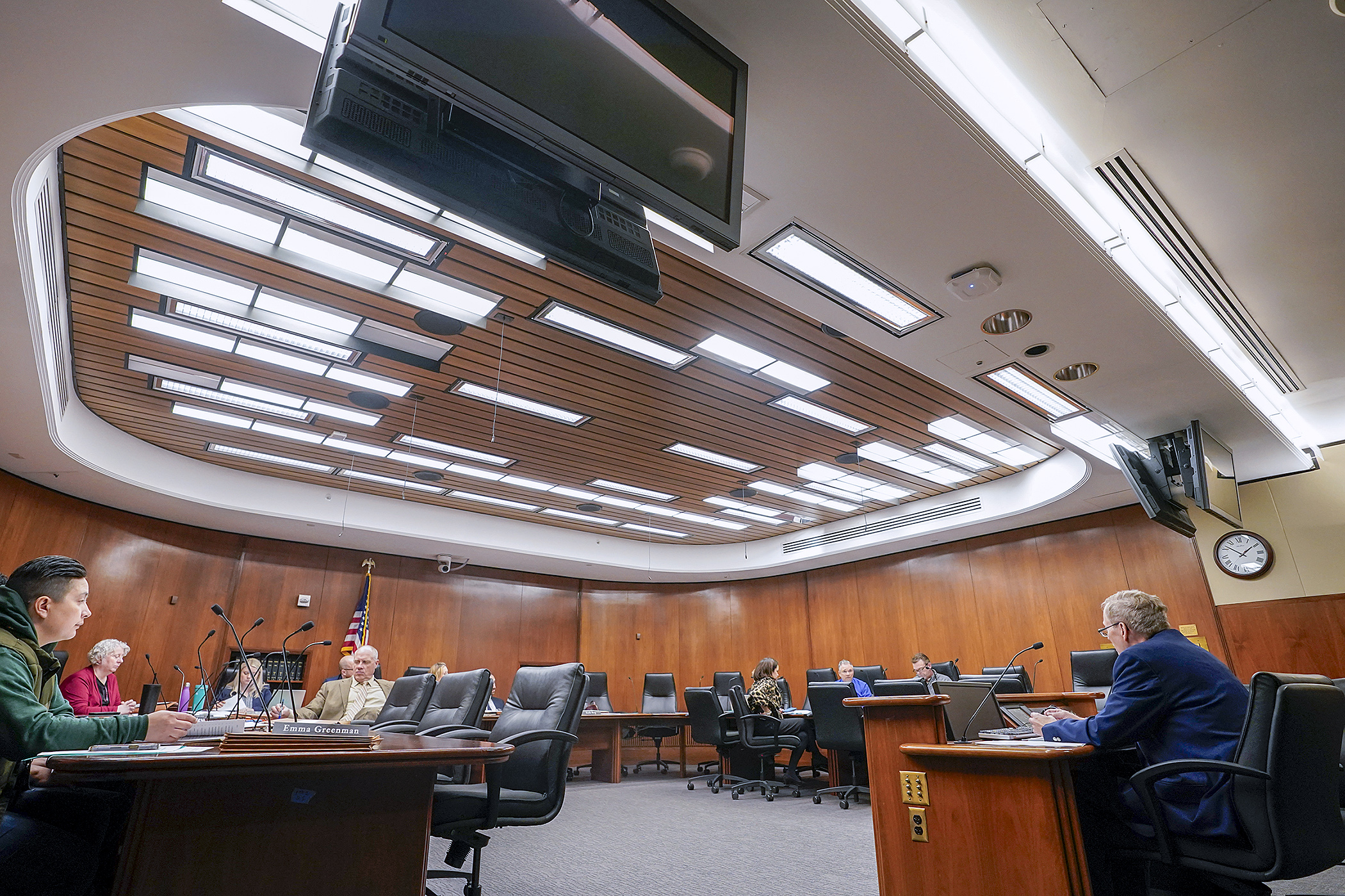Committee sends labor policy bill to the House Floor

Provisions that address issues ranging from drug testing and surgical smoke to job postings and credit card tipping are headed to the full House.
Each are part of the labor and industry policy bill.
Sponsored by Rep. Michael Nelson (DFL-Brooklyn Park), HF3947, as replaced by a delete-all amendment and further amended, was approved by the House Labor and Industry Finance and Policy Committee Tuesday.
“We’ve heard all these bills in committee,” Nelson said. “This is our policy bill for the year. Hopefully it matches up with the Senate and we can go from there.”
Rep. Joe McDonald (R-Delano) expressed disappointment at the lack of bipartisanship.
“It’s the second year in a row that the majority chose not to have any Republican bills in your omnibus bill, nor even a hearing,” he said. “... I don’t think that’s good governance.”
Saliva drug and alcohol tests
Delays in laboratory drug and alcohol test results are causing Minnesota employers who require job applicants to take a drug test to lose those potential employees. The bill would add an oral fluid test as another valid and quicker means for an employer to test a job applicant for drugs or alcohol.
An oral fluid test uses a saliva sample to measure the presence of drugs, alcohol, cannabis, or their metabolites with the same, or better, accuracy as existing lab programs. If the oral test comes back positive, inconclusive or invalid, the applicant must undergo further testing using the services of a laboratory within 48 hours of the oral fluid test to remain eligible for the job.
Surgical smoke
The bill would require all Minnesota health care facilities to use a smoke evacuation system during any surgical procedure that is likely to generate surgical smoke.
Medical staff in operating rooms can breathe in surgical smoke equivalent to smoking 27 to 30 cigarettes daily, according to the Minnesota Nurses Association. Those who spend the most time in the operating room report twice as many respiratory issues as compared to the general population.
Job listing salary range
In an effort to make it harder for employers to get away with paying different salaries for the same work, and to help shrink the wage gap between working women, minorities and men, the bill would require employers with more than 30 employees to disclose salary ranges, benefits and compensation in job postings.
Pay transparency can benefit both employees and employers by increasing productivity, giving employees better negotiating power, higher job satisfaction and employee retention, according to Rep. Kristin Bahner (DFL-Maple Grove), who brought forth the proposal.
An amendment offered by Rep. Andrew Myers (R-Tonka Bay) to make the effective date of this policy Jan. 1, 2025, was adopted.
The bill would also:
- require an employer to maintain coverage under any group insurance policy, group subscriber contract, or health care plan for an employee on leave and any dependents as if the employee was not on leave. The employee must continue to pay any of their share of the cost of the benefits;
- require a service provider employer to not restrict, restrain, or prohibit a customer from directly or indirectly hiring an employee of that service provider;
- adjust the minimum wage rate to $10.85, which is currently the large employer minimum wage rate, applicable to most employers starting Jan. 1, 2025, and;
- require tips received by an employee via debit or credit card to be credited to the employee in the pay period received and paid to the employee no later than the next scheduled pay period.
***
What’s in the bill?
The following are selected bills that have been incorporated in part or in whole into the labor and industry policy bill:
Related Articles
Search Session Daily
Advanced Search OptionsPriority Dailies
Speaker Emerita Melissa Hortman, husband killed in attack
By HPIS Staff House Speaker Emerita Melissa Hortman (DFL-Brooklyn Park) and her husband, Mark, were fatally shot in their home early Saturday morning.
Gov. Tim Walz announced the news dur...
House Speaker Emerita Melissa Hortman (DFL-Brooklyn Park) and her husband, Mark, were fatally shot in their home early Saturday morning.
Gov. Tim Walz announced the news dur...
Lawmakers deliver budget bills to governor's desk in one-day special session
By Mike Cook About that talk of needing all 21 hours left in a legislative day to complete a special session?
House members were more than up to the challenge Monday. Beginning at 10 a.m...
About that talk of needing all 21 hours left in a legislative day to complete a special session?
House members were more than up to the challenge Monday. Beginning at 10 a.m...